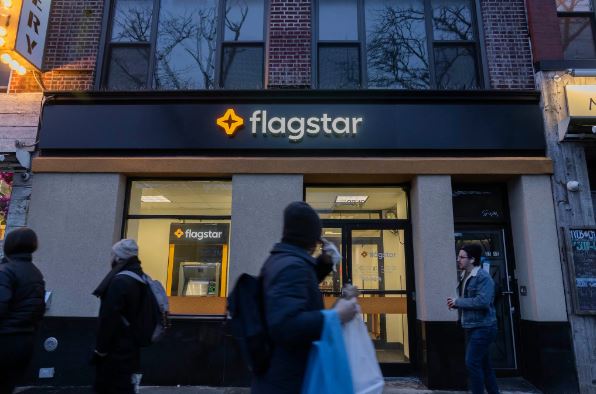Former Treasury Secretary Steven Mnuchin made headlines on Wednesday as he spearheaded a financial rescue mission for New York Community Bank (NYCB), injecting over $1 billion into the struggling lender. Mnuchin, through his private equity firm Liberty Street Capital, contributed $450 million, with additional funding coming from investors like billionaire Kenneth Griffin’s hedge fund Citadel.
The bailout comes at a critical juncture for NYCB, which has been grappling with challenges stemming from its exposure to a softening real estate market and internal management issues. As part of the deal, NYCB will see its third chief executive in just one month, with Joseph Otting, a seasoned banking executive and Mnuchin ally, assuming the leadership role.
The influx of capital aims to stabilize a bank that has faced a series of setbacks this year, drawing the attention of regulators concerned about avoiding another banking crisis in the wake of Silicon Valley Bank’s collapse. Despite the bank’s recent struggles, Mnuchin expressed confidence in NYCB’s future growth prospects, citing its strong foundation.
NYCB’s troubles began to surface when it reported a $240 million loss in its latest earnings report, largely attributed to real estate loans. The bank’s heavy concentration in loans to rent-regulated apartments further compounded its woes, as restrictive laws hampered property value improvements. The unexpected losses rattled analysts and investors, prompting a swift decline in the bank’s stock and raising questions about its financial stability.
The Long Island-based lender, which operates over 400 branches including Flagstar Bank, expanded rapidly through acquisitions, including a significant portion of Signature Bank’s assets. However, the integration of these assets proved challenging, with NYCB’s former CEO, Thomas R. Cangemi, attributing the bank’s recent struggles to the pressures of rapid growth and increased regulatory scrutiny.
The appointment of Joseph Otting as the new CEO signals a reunion between him and Mnuchin, with the two having previously worked together at OneWest, a California lender acquired by Mnuchin following the 2008 financial crisis. Otting’s tenure as comptroller of the currency was marked by controversy, as he clashed with regulators and faced criticism for his proposals regarding banking regulations.
The $1 billion investment, which came together swiftly over the past five days, includes participation from private equity firms Hudson Bay and Reverence Capital. Mnuchin and Otting will join NYCB’s board, alongside representatives from the two private equity firms.
News of the bailout initially sparked investor concerns, leading to a halt in NYCB’s stock trading. However, following the public announcement of the overhaul, the bank’s shares experienced volatile fluctuations, ultimately closing the day with a 7 percent gain. Despite this temporary boost, NYCB’s shares remain down nearly 67 percent for the year.
With $83 billion in deposits and over $100 billion in overall assets, NYCB’s fate is closely tied to the housing market, given Flagstar’s significant presence as a mortgage servicer. As the bank navigates through this challenging period, Mnuchin’s intervention offers a glimmer of hope for its future stability and growth.

